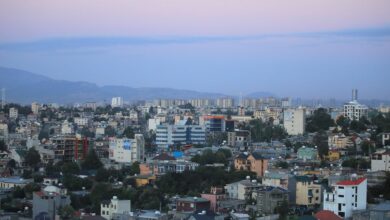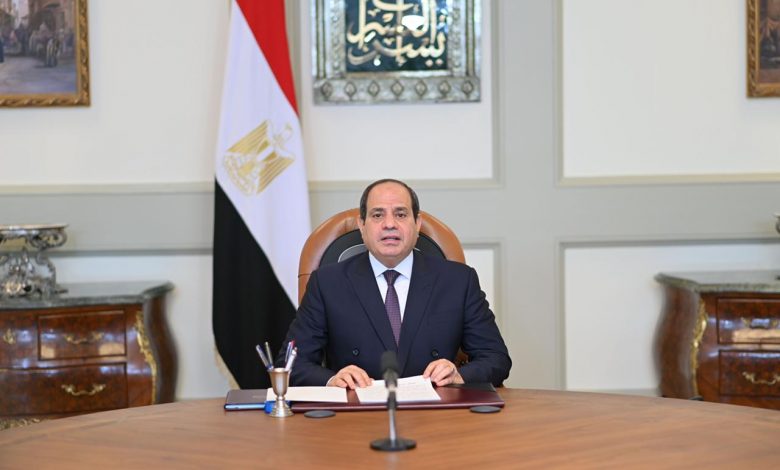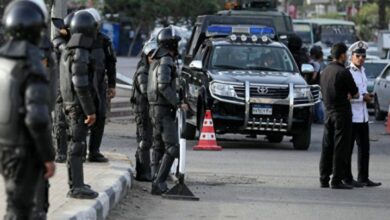
The expiration of Egypt’s state of emergency, a continued faceoff between the two remaining presidential candidates and another round of a petrol crisis are the dominant themes in Thursday’s papers.
A state of emergency that has been in place for decades, and used by both the Mubarak regime and the transition’s military rulers to repress dissent and commit widespread human rights abuses, ends today. It will be the responsibility of Parliament to decide whether or not to extend it.
Privately owned Al-Shorouk celebrates this occasion by stating boldly on its front page: “Today, Egypt is without ‘emergency.’” It goes on to say, though, that this doesn’t end the army’s role in maintaining law and order inside Egypt, particularly with two important political events still taking place: deposed president Hosni Mubarak’s trial and verdict on Saturday, and the runoff round of the presidential election in mid-June.
Judge Tahani al-Gebali, deputy head of the Supreme Constitutional Court, is quoted in the story as pointing to the army’s role in the constitution, which designates the military as one of the state’s tools for protecting its borders, as well as internal security if police forces cannot do so.
Al-Shorouk also provides background on the history of Egypt’s state of emergency on page four. It explains that such a state is usually applied in exceptional circumstances, such as wars or cases that cannot be dealt with using the country’s normal laws. Egyptians have been subject to this and Martial Lawon and off from the time of the British administrative period. After former President Anwar Sadat’s assassination in 1981 it was renewed every year until 1988. Its extension was then renewed every three years, Al-Shorouk reports.
The Muslim Brotherhood’s party paper, Freedom and Justice, points out that there have been 30,000 political prisoners under the state of emergency. Its three quarter-page spread on page seven quotes a number of analysts, including constitutional scholar Atef al-Banna, Islamic Labor Party member Diaa al-Sawy and activist Ali al-Fil, who offer assurances that law and order can be maintained in the country without this extraordinary legislative state of affairs. It explains that its use has mainly been to suppress political opposition and freedom of expression, particularly in the war against Islamists under Mubarak. The report says that 99 percent of the state of emergency’s use was for this purpose, and the remaining 1 percent to tackle drug use and terrorism.
The paper also prominently displays its presidential candidate Mohamed Morsy’s new slogan for the runoff: “Our strength is in our unity.” His slogan for the first round was “Renaissance is the will of the people.” Ahmed Abdel Atta, of Morsy’s campaign, explains the new slogan is to extend bridges of cooperation between the campaign and all Egyptians who belong to the revolution.
The new slogan and its intention is no doubt a reflection of the fact that the race is now between an Islamist candidate, whose party already dominates Parliament, and a figure that represents the old regime — Ahmed Shafiq. It is not certain that all voters who voted for non-feloul [remnants of the Mubarak regime] candidates will automatically give their votes to Morsy, whose party many believe has turned its back on many of the revolution’s demands. Nevertheless, the new slogan appears to be appealing to this voter base.
Privately owned Al-Tahrir is critical of the new slogan, saying it was stolen from Mohamed ElBaradei’s campaign. ElBaradei, who was a leading opposition activist in the lead-up to the 25 January revolution, and who many expected to run for president, is being wooed by the Muslim Brotherhood to lead a coalition government.
Al-Shorouk’s Islamist columnist Fahmy Howeidy likens the race between Shafiq and Morsy to what the Americans did to Palestinian leader Yasser Arafat in 1988, when they refused to deal with him and thus eventually pressured him into accepting the legitimate right of Israel to exist and give up on armed Palestinian resistance. He says that "blackmailing" Morsy’s campaign into making difficult concessions in order to gain their political support will only strengthen Shafiq’s campaign. He warns that this will not only be a loss for Morsy’s campaign, but “the nation and revolution.”
"Petrol queues return … and those responsible exchange accusations," state-owned Al-Ahram reports on its front page. Cairo and a number of other governorates are suffering from slower-than-usual moving traffic as a result of long queues at petrol stations. Solar and benzene 80 are in short supply. This comes during the wheat cultivation season, in which there is higher than usual use of transportation.
An unnamed source at the state-owned Egyptian General Petroleum Corporation tells Al-Ahram that the main reason for the shortage is a lack of cash to purchase these products. Finance Minister Momtaz al-Saeed defended himself by saying that the ministry has the money, but will only provide this once petroleum corporation uses all its available resources. Mahmoud Balbagh, head of the Egyptian Electricity Holding Company, warned of the importance of resolving this issue so that Egypt doesn’t suffer a blackout.
Freedom and Justice explains the petrol shortage as a political tool by Shafiq's campaign. It leads its report with: "The feloul's candidate ignites the petrol war." It explains that the timing, so close to the presidential runoff, is meant to create instability and lead people to voting for a strongman candidate like Shafiq.
Egypt’s papers:
Al-Ahram: Daily, state-run, largest distribution in Egypt
Al-Akhbar: Daily, state-run, second to Al-Ahram in institutional size
Al-Gomhurriya: Daily, state-run
Rose al-Youssef: Daily, state-run
Al-Dostour: Daily, privately owned
Al-Shorouk: Daily, privately owned
Al-Watan: Daily, privately owned
Al-Wafd: Daily, published by the liberal Wafd Party
Youm7: Daily, privately owned
Al-Tahrir: Daily, privately owned
Freedom and Justice: Daily, published by the Muslim Brotherhood's Freedom and Justice Party
Sawt al-Umma: Weekly, privately owned
Al-Arabi: Weekly, published by the Nasserist Party
Al-Nour: Official paper of the Salafi Nour Party




